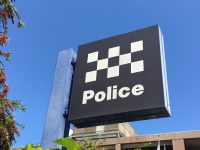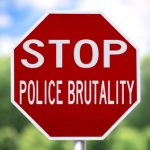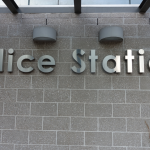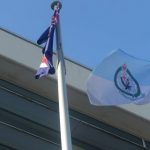Who do you call when you need help? The police apologist’s mantra

“Who do you call when YOU need help?”
It’s a question that often comes up when we write blogs highlighting misconduct, corruption or questionable incidents involving members of the police force.
The reality is that police have an important role to play in our society.
The police are meant to be there to ‘serve and protect’ members of the public; indeed, that’s what they swear to do, and it’s why we spend several billion of our hard-earned tax dollars every year funding police forces across Australia.
Police in NSW are given enormous powers over individuals, and that power is back up by lethal weaponry. Police officers are therefore in a unique position of power when they are on our streets, especially when we have an overwhelmingly unarmed population unlike in the United States.
The position of a police officer requires them to act to a high moral standard and within the confines of the law, and a part of their job is to be there when members of the public are in need, including responding to calls when the law is broken.
To those officers who maintain those standards, kudos to you for honourably performing a job that can be stressful, frustrating, dangerous and call for spontaneous decisions that are easily scrutinised in hindsight.
But to those who breach our trust by committing serious offences such as assaulting or even killing members of the public without justification, like the shooting death of Adam Salter, we believe that your actions should be highlighted, investigated by a body other than the police force itself, disciplined and subjected to criminal prosecution like anyone else.
Take the case of 16-year-old Melissa Dunn, who tragically ended her own life 3 days after a trial at which she was found not guilty of resisting arrest and hindering police. The magistrate found that police had used ‘an inordinate amount of force’ when detaining Melissa.
Another one of our recent blogs described the questionable methods employed by Victorian Protective Services Officers in apprehending two teenage boys using capsicum spray. Charges against one of the boys were dismissed in court after the magistrate condemned the officers’ behaviour and found that they had embellished their account of the incident under oath.
While not all officers behave in this way, the fact is that it should not occur at all. Police are required to abide by strict rules contained in both legislation and the Police Handbook when carrying out their duties, and breaches of those rules should be dealt with seriously rather than baulked at by their investigating colleagues.
And again, with the taxpayer footing the bill for the police force – which was estimated at $3.2 billion last year in NSW alone – we are entitled to expect a high standard of ethical behaviour from all police.
Police training and rules
A wide range of police powers and responsibilities are contained in the Law Enforcement (Powers and Responsibilities) Act 2002 (the LEPRA).
For instance, Part 8 of the LEPRA (sections 99 to 108) sets out rules that police are required to follow when arresting people, and section 231 states that police can only use ‘such force as is reasonably necessary’ to make an arrest.
Clearly in the case of Melissa Dunn and several other cases we have reported on, the amount of force was excessive and therefore amounted to assault – yet internal investigations by police routinely clear their own of any wrongdoing, and disciplinary action is rarely taken, let alone criminal charges brought.
The NSW Police Handbook is a source of policies and procedures which NSW Police must have regard to when carrying out their duties.
It provides a range of alternatives to arrest, such as the issuance of a warning, caution, penalty notice, or a field or future court attendance notice (CAN).
However, in many cases, these alternatives are not even considered by police, who frequently proceed to unwarranted and heavy-handed arrests.
Several court cases have confirmed that this approach is against the law, and that arrest should only ever be used as a measure of last resort.
As law enforcement officers who are invested with extensive powers – and who deal with members of the public on a daily basis – prospective police are required to undergo an amount of training prior to joining the force.
In NSW, this training is predominantly delivered at the NSW Police Academy located at Goulburn, which is facilitated by Charles Sturt University.
Recruits receive up to two years of formal training before graduating as a general duties officer. They must work as a general duties officer for at least three years prior to specialising in a particular field.
Yet despite these guidelines and the training which police receive, there are still many individuals who take advantage of their enormous powers and relative lack of accountability by breaking the law.
In relation to accountability, we have written a number of blogs about the ineffectiveness of internal police investigation processes and the fact that the NSW Ombudsman has limited ability to deal with complaints against police – receiving upwards of 3000 complaints against police every year with insufficient resources and no direct power to discipline officers.
We’ll publish our views, but you shouldn’t publish yours!
Through television and other media, police often release information about people that they have arrested which, needless to say, can be heavily biased.
The Police Association is an enormously powerful organisation and lobby group – with millions of dollars at its disposal and access to the highest priced public relations companies and lawyers, including many Queen’s Counsel. It takes full advantage of that power to push its agenda to the public and politicians through various media sources.
Police regularly make both staged and impromptu public statements. In one of our recent blogs, we outlined a case whereby police described the conduct of a 57-year-old man as ‘disgraceful’ before even knowing the details of the case including whether an offence had occurred at all, let alone whether the man they picked out was actually responsible. That man committed suicide as a result of the relentless condemnation.
But while police regularly release their side of the story, it seems that whenever any individual or group publishes information critical of the force – or certain officers and their actions – police and their apologists become incensed or even offended, taking to social media in an attempt to bully, belittle and silence those who aren’t aligned with their views.
It should be noted that many current and former police officers follow our social media pages; some of them being the most regular and vocal apologists for police misconduct.
But why shouldn’t we expect high standards of police? And why shouldn’t we highlight incidents of alleged misconduct or corruption? Should it remain hidden? Shouldn’t the public be entitled to receive information from various sources – from police releases AND other sources – and form their own opinions?
And what has the question ‘who do you call when you need help’ got to do with it??
Hypocrisy within the force
Police officers are entrusted with apprehending people suspected of breaking the law – and they themselves are required to abide by the law.
Besides the NSW Police Handbook, police are also required to have regard to the Police Regulation 2008, which prescribes acceptable standards of police conduct.
For example, clause 78 of the Regulation states that members of the NSW Police Force are not allowed to use prohibited drugs or steroids.
The possession and use of prohibited drugs is, of course, also an offence under the Drug Misuse and Trafficking Act, and drug possession is one of the most commonly prosecuted offences in our courts.
Yet as highlighted in a number of our blogs, there are certain police officers – including drug squad members – who have been caught together taking drugs, as if it is an acceptable thing to do.
This includes five current and former NSW police officers who were investigated by the Police Integrity Commission (PIC) for recreational drug use during a weekend away on the Gold Coast in 2010.
That investigation was later criticised by a magistrate in Queensland as ‘an abuse of process’, yet the incident remains, and it raises the question: if police are unwilling to investigate and prosecute themselves, and if an investigation by the PIC is considered an ‘abuse of power’, who else is going to make police accountable for their actions?
Very recently, questions were also raised of the AFP after a bag containing several kilograms of cocaine was left inside a car in a public area for days. Around the same time, a customs officer who participated in an operation that intercepted over 400kg of cocaine was caught snorting lines of cocaine. Those questions seem to have ‘slipped through to the keeper’.
But why shouldn’t such incidents be reported on? And again, what’s the relevance of the question: ‘who do you call when you need help?’.
Racism
The Police Handbook also provides guidelines for dealing with vulnerable members of the public, including Aboriginal and Torres Strait Islanders.
Yet despite these guidelines, reports of blatant racial profiling and provocation by members of the police force are commonplace.
In fact, racism against Indigenous persons is so prevalent that criminal lawyers have coined the phrase ‘the trifecta’ to describe scenarios where police approach Indigenous people for using offensive language, which then escalates into a situation where the person allegedly resists arrest and assaults a police officer. The person is then charged with all three alleged offences.
Several studies have shown that police are far less likely to approach non-Indigenous people for minor offences such as offensive language; which is one reason for the much lower incidence of the ‘trifecta’ among those who are not Indigenous.
Our approach
As a firm that does not shy away from publishing blogs about topical and controversial legal issues, we often cop criticism for expressing our views, including from members of the police force and police apologists.
However, we will continue to draw attention to instances where legal and ethical standards are breached; whether by police, dodgy lawyers, shady magistrates, corrupt politicians or other individuals and bodies relevant to the criminal justice system.
Regrettably, there has been a marked increase in both police powers and certain categories of incidents involving police in recent years – especially fatal shootings. Such incidents should be highlighted, concerns should be raised and questions should be asked.
Just as police will immediately publish press releases regarding various incidents, others should also have their say – although they may not be as powerful and influential as the Police Association.
We understand that no profession is completely immune from corruption, and as stated, we have penned numerous blogs about lawyers and others who have broken the law or acted unethically.
Budding legal practitioners will often learn about the ‘rule of law’ early in their studies; which is a fundamental democratic principle that provides an important check on those in positions of power. It states that the law applies equally to everyone, regardless of their authority or influence.
People in positions of power should not act outside the rule of law – regardless of who they are or what they do. And those who break the law should have their conduct highlighted and subjected to the scrutiny of proper legal process, including those entrusted with upholding the law.






